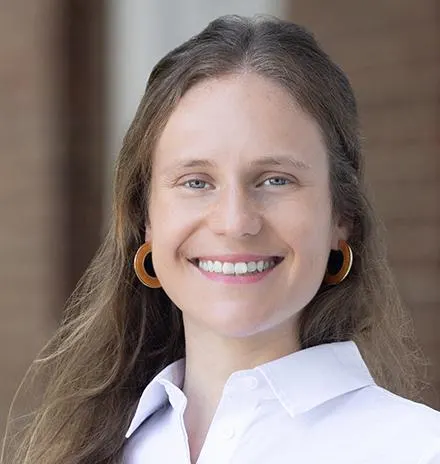Free and fair elections should result in governments more committed to improving lives than repaying political favors—but how? And by how much?
Growing up in Colombia, Harvard Business School Assistant Professor Natalia Garbiras-Díaz wanted to understand why some nearby towns enjoyed working electricity, clean running water, and efficient sewage and garbage removal, while others lacked basic utilities and roads.
“I’ve always been interested in understanding how, within the same country, you can have these disparities,” she says. “Some places had a lot of public services, while others were completely deprived.”
That childhood curiosity sparked a research agenda to answer these questions, leading to a paper that examines how electoral integrity—or lack thereof— influences the quality of services officials deliver once in office. The results offer a reason for optimism at a time when cynicism and discontent about public officials worldwide runs high.
Using the 2019 mayoral election in Colombia as a test, Garbiras-Díaz and Mateo Montenegro, assistant professor at the Toulouse School of Economics, led an experiment that reduced the prevalence of electoral irregularities. In a follow-up paper, “Electoral Integrity and Local Development: Experimental Evidence from Colombia,” they show how fairer elections put higher-quality leaders into office, and how much those leaders improved infrastructure.
“For citizens, I believe it’s important for them to feel that democracy is responding to them,” she says. “We found that one of the ways we can restore trust in democracy is when democracy delivers.”
For citizens, I believe it’s important for them to feel that democracy is responding to them. We found that one of the ways we can restore trust in democracy is when democracy delivers.
Garbiras-Díaz presented the findings of this research paper in June at the Annual Meeting of the European Political Science Association.
A civic tech tool with real impact
The researchers partnered with an NGO that created a platform called “Pilas con el voto,” or “Watch out for the vote,” to encourage citizens to report irregularities like voter intimidation.
They randomized a social-media campaign to randomly selected municipalities; In 473 municipalities, they encouraged citizens to report irregularities through “Pilas con el voto,” while another 225 received a campaign reminding citizens of October elections.
To get the word out, the team launched a large-scale advertising campaign on Facebook and Instagram in the days leading up to the election, reaching about 4.4 million citizens, or a third of voters in the randomly selected municipalities. They varied their communication approaches to probe potential drivers of underreporting.
To document irregularities in 2019 elections, the team collected news accounts and reviewed voting data to identify statistical patterns of manipulation. They found that the campaign was successful in reducing electoral irregularities across multiple measures.
By the numbers
Garbiras-Diaz and Montenegro found that public services improved in communities where citizens are encouraged to report electoral irregularities.


